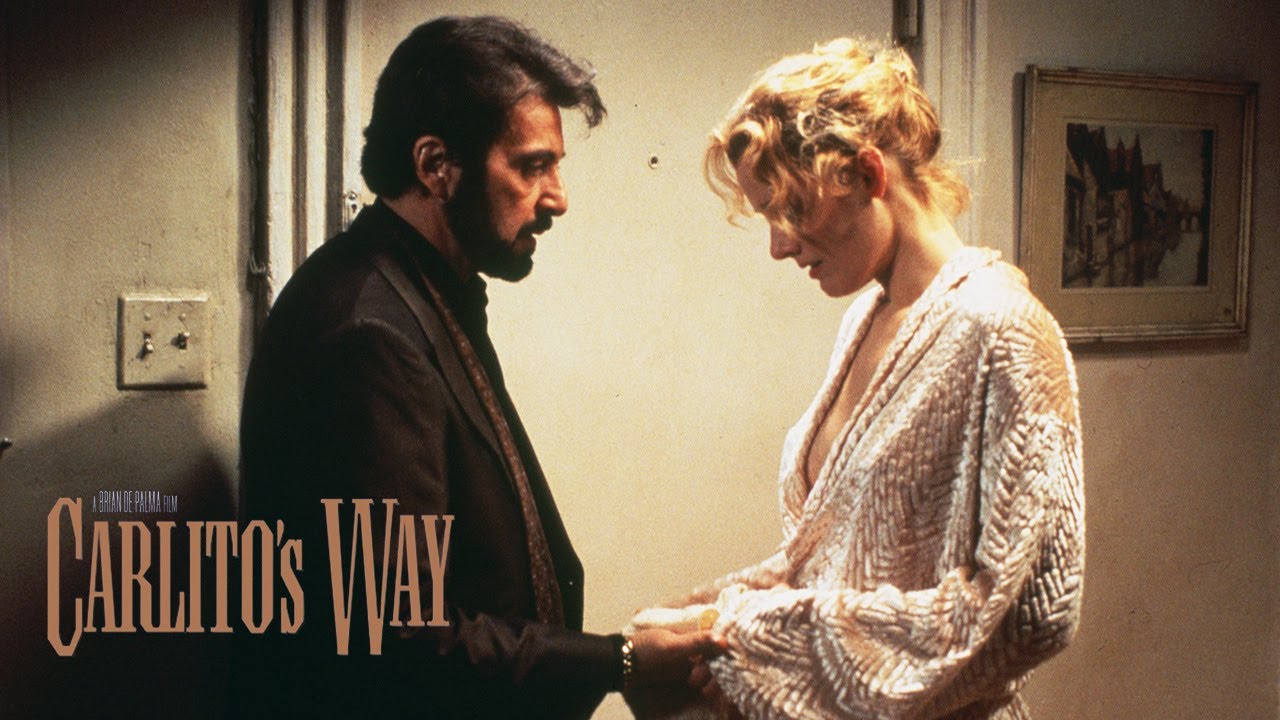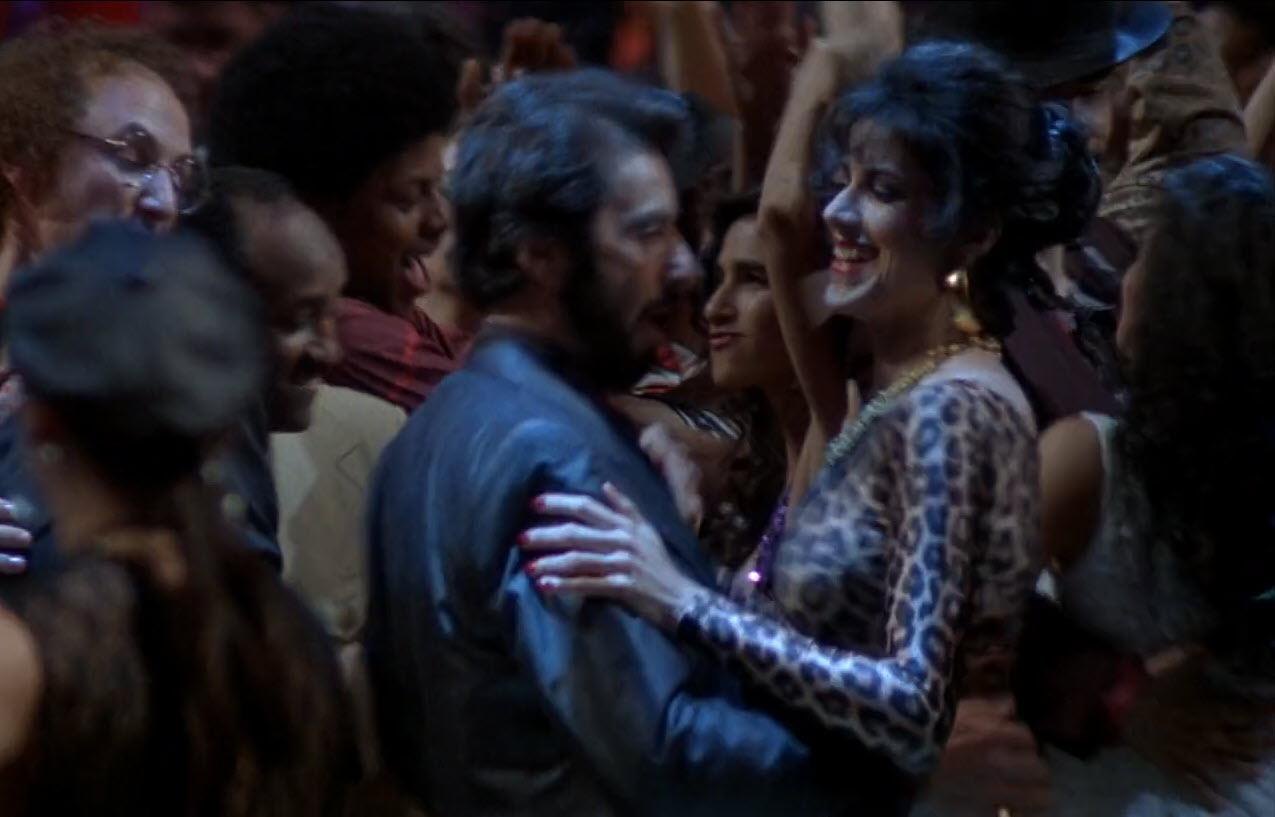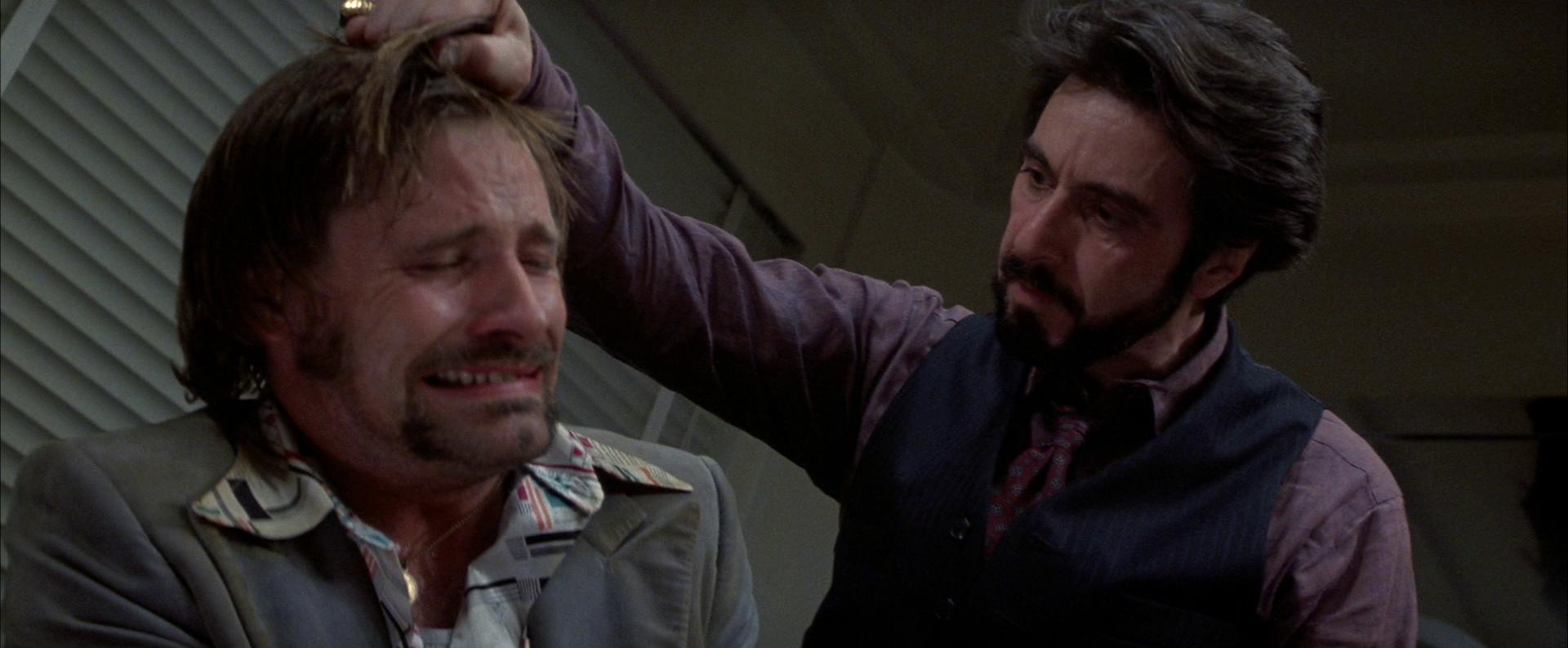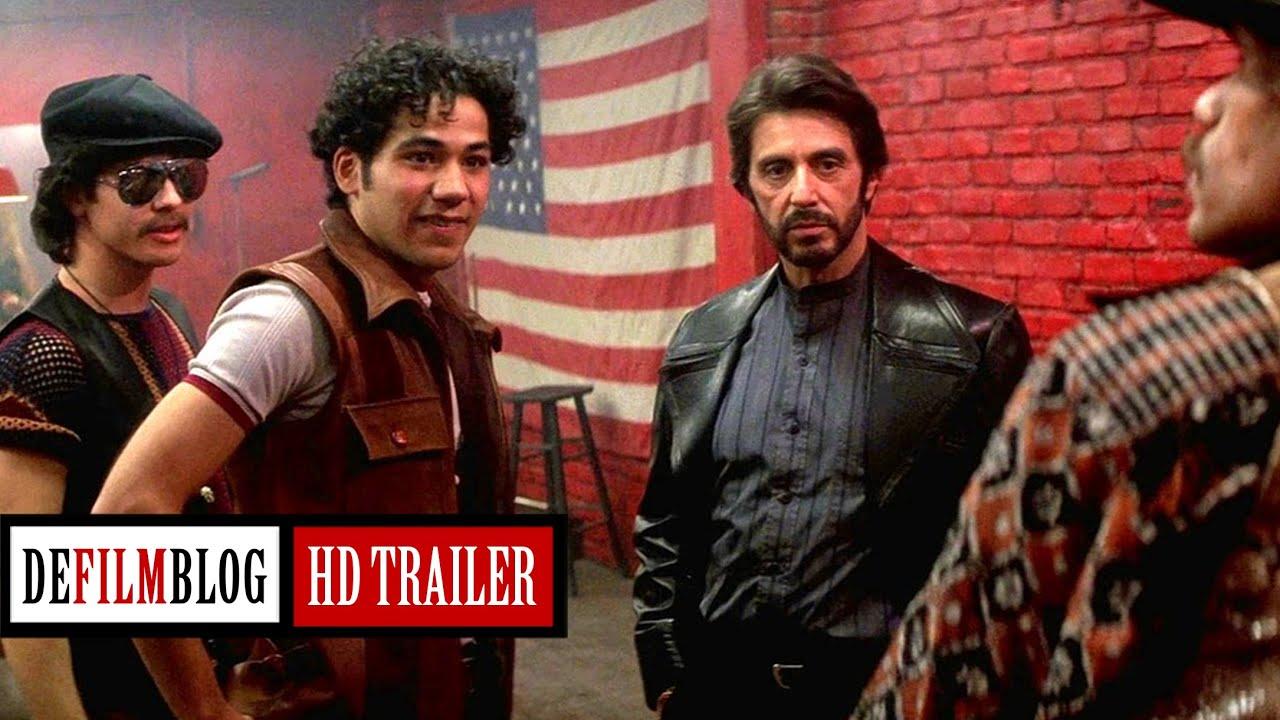Carlito’s Way (1993)

“Carlito’s Way” is a 1993 American crime drama film directed by Brian De Palma and written by David Koepp, based on the novels Carlito’s Way and After Hours by Judge Edwin Torres. The film stars Al Pacino as Carlito Brigante, a Puerto Rican gangster recently released from prison, who seeks to escape his violent past and lead a more peaceful life. Set in the gritty streets of New York City, the film explores themes of redemption, loyalty, and the inescapable pull of one’s past. With its complex characters and morally ambiguous storylines, “Carlito’s Way” remains a compelling exploration of the challenges of trying to change one’s fate.
The story centers around Carlito Brigante, a former drug lord who is determined to leave his criminal life behind after being released from prison on a technicality. With the help of his lawyer, David Kleinfeld (Sean Penn), Carlito hopes to start fresh and invest in a nightclub, but the dangers of his past continue to haunt him. Despite his desire to go straight, Carlito finds himself entangled once again in the world of crime, as his old associates and the law continue to pull him back into a life of violence and deceit. Carlito’s struggle to escape his past is central to the film, as he faces betrayal and difficult choices at every turn.
Al Pacino’s performance as Carlito Brigante is one of the film’s standout elements. Pacino brings a sense of depth and vulnerability to the character, showing Carlito’s internal conflict between wanting to change and the inevitable pull of his criminal past. Carlito’s desire for redemption is genuine, but Pacino masterfully conveys the hopelessness of his situation, as every attempt to escape seems to be thwarted by those around him. Pacino’s portrayal of a man trying to outrun his past, only to be continually dragged back into it, is both heartbreaking and captivating.

The supporting cast also delivers strong performances, particularly Sean Penn as the corrupt and unstable lawyer, David Kleinfeld. Kleinfeld, who initially seems like a potential ally for Carlito, is revealed to be a deeply flawed character whose own moral failings contribute to Carlito’s downfall. The relationship between Carlito and Kleinfeld is complex, as Carlito places his trust in the lawyer, only to find that Kleinfeld’s ambition and greed lead to betrayal. The dynamic between the two characters adds an additional layer of tension to the narrative, as Carlito’s path to redemption becomes increasingly obstructed.

The film’s direction by Brian De Palma is key in creating a tense and atmospheric experience. De Palma’s use of visual storytelling, particularly his long tracking shots and meticulous attention to detail, enhances the film’s gritty realism. The urban setting of New York City, with its dark alleys and seedy clubs, provides the perfect backdrop for Carlito’s struggle. The film’s pacing, combined with a powerful score by composer Patrick Doyle, keeps the audience engaged, building to a tense and dramatic conclusion. De Palma’s direction underscores the theme that, no matter how hard Carlito tries to change, his past will always follow him.

In conclusion, “Carlito’s Way” is a gripping and powerful crime drama that explores the complexities of redemption, loyalty, and fate. Al Pacino’s exceptional performance, combined with strong direction by Brian De Palma, makes the film a standout in the crime genre. The film’s exploration of Carlito’s tragic struggle to escape his violent past and the betrayals that keep him from finding peace makes it both heartbreaking and memorable. “Carlito’s Way” is a timeless tale of how the choices of the past can shape and ultimately define the future, and how redemption can be elusive, even for those who truly seek it.











